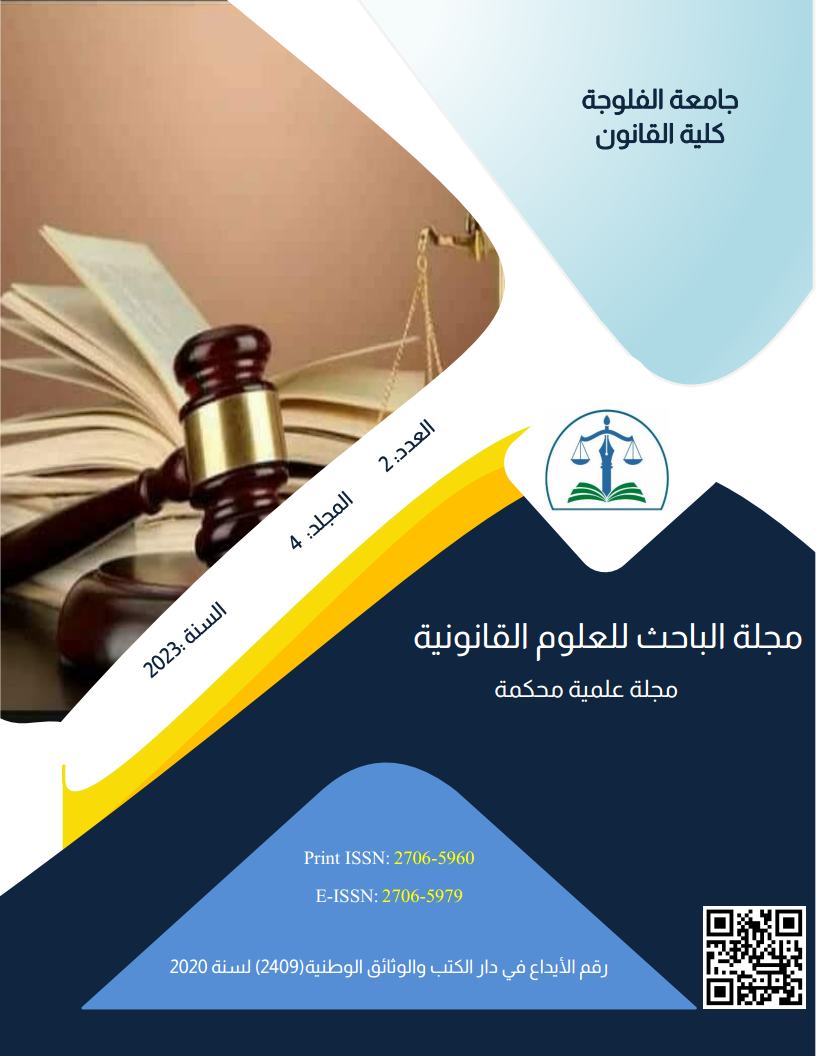Commenting on judicial decisions (Lawyer and public order fees) (The position on combining compensatory benefits and deferred benefits)
Doi:https://doi.org/10.37940/JRLS.2023.4.2.9
Abstract
The attorney's fees, which the lawyer agrees with his client, are the consideration he receives for the legal work he carries out on behalf of his client, whether this work is legal advice or drafting legal documents such as various types of contracts and warnings or representing the client or administrative or judicial authorities or even reviews. Administrative administration on behalf of the client, and this representation may take the form of adversarial action before arbitration bodies. Even more than that, the supreme courts in most countries of the world do not accept appeals before them unless they are signed by a lawyer who has the authority to plead before the Supreme Court, as the lawyer’s authority in those countries is graded. According to the hierarchy of the courts, there is a lawyer who appears before the courts of first instance, the authority of a lawyer before the courts of appeal, and the authority of courts before the Court of Cassation or Cassation. A lawyer is not accepted to appear before the Court of Appeal unless he has the authority to appear before these courts, and a lawyer is not permitted to sign an appeal or appear before the Court of Cassation unless he has the authority to appear before these courts. I did not have the authority to appear before the Court of Cassation, and in the last case it is authority (C) according to the Iraqi Bar Law.
Law work is not considered voluntary work. Rather, the lawyer receives a fee for it, which is his primary means of earning and living. Therefore, if the agreement between the two parties does not agree on the amount of the lawyer’s fees, and there is no explicit agreement for the lawyer to do his work for free, then the lawyer deserves fees that will be taken into consideration. The effort he put into the work entrusted to him and the amount the client benefited from the lawyer’s work. These are approximate standards that do not indicate the exact wage that the lawyer deserves, but rather they are indicators of the amount of that wage.
The lawyer’s wage is subject in his estimation to the general rule in contracts, which is the principle of freedom of contract. Every lawyer has the right to agree with his client on the amount of wage to which he is entitled, and the client is obligated to pay this wage in the manner agreed upon between the two parties.
Keywords:
The attorney's fees are agreed upon by the lawyer with his client, Commenting on judicial decisions (Lawyer and public order fees) (The position on combining compensatory benefits and deferred benefits)Downloads
Published
How to Cite
Issue
Section
License
Copyright (c) 2023 Journal of researcher for legal sciences1

This work is licensed under a Creative Commons Attribution-NonCommercial 4.0 International License.






